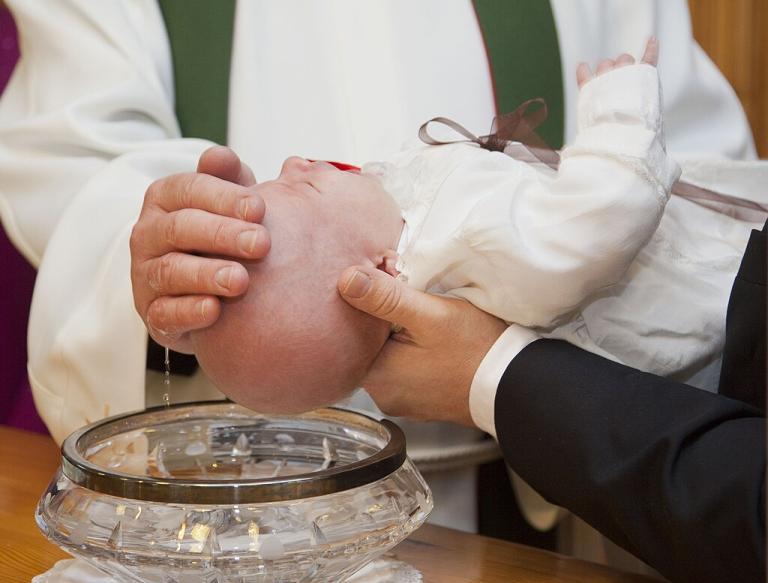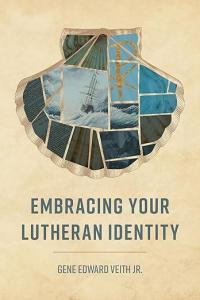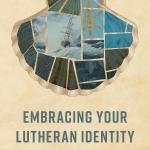Yesterday I posted about my new book Embracing Your Lutheran Identity, which was suggested by Cranach readers and is a new departure for me: a replication of how I teach, complete with “dialectical” questions, making the book suitable for both individual reading and group study.
Here is a sample from the first chapter, “Your Identity in Christ”:
Who are you? What are you?
Those would seem to be easy questions. But they aren’t. Especially today. These are questions about your identity. People today are obsessed with identity, and yet they often have a difficult time identifying themselves.
Part of the problem is that identity involves both your uniqueness and your belonging. Each of us is a unique individual, and yet each of us also yearns for connections with other people.
Many people are trying to find their identity in their sex, ethnicity, or social status. They try to define themselves—and others—in terms of race, wealth, politics, or sexual desires. This never works in the long run, since these and other external and superficial factors do not describe who you are deep down, in your inmost thoughts and feelings, in your personal uniqueness.
There is only one person who knows you in that way, who knows you completely in the depths of your personal uniqueness. That would be God, who created you distinctly from everyone else and is in constant communion with your very soul. Furthermore, God designed you to be in relationship with other persons, with Him and with other people whom He brings into your life.
So to find our identity, we would do well to learn how God identifies us.
Your Baptismal Identity
It is astonishing how directly the Bible addresses the identity preoccupations of our time—ethnicity, social status, and sex—and puts them in their place:
For as many of you as were baptized into Christ have put on Christ. There is neither Jew nor Greek, there is neither slave nor free, there is no male and female, for you are all one in Christ Jesus. (Galatians 3:27-28)
Everyone who is baptized has “put on Christ.” So when God sees us, He sees Jesus. He sees not our sinfulness but Christ’s righteousness. Christ—by becoming one of us, bearing our sin, and taking our punishment—has our identity, so now we have Christ’s identity. Our identity is no longer based on the world’s categories.
“There is neither Jew nor Greek.” Our ethnic, national, cultural, or racial identity no longer applies. Neither to our relationship to God, or, as St. Paul is exhorting, to Christians’ relationships with each other.
“There is neither slave nor free.” Our social status, our economic position, our place in society no longer define our identity. And, importantly to today’s issues, as to the slaves and other oppressed people who have always been drawn to Christianity, our identity is not to be found in our victimhood and our oppression. They could say, “my slavery doesn’t define me.” And a free citizen would have to say, “my privilege doesn’t define me.”
“There is neither male nor female.” We are not to find our identity in sex or gender. Not in feminism or the men’s movement, nor in trying to change our gender or in fixating on our sexual proclivities.
It isn’t that these categories don’t exist or are not important. They are part of our physical creation and our social and cultural life. The Bible has much to say about them all. But they are not to be identity-defining.
(1) Why is your baptismal identity so much more important than your ethnic, national, cultural, or racial identity?
[space for writing]
(2) Why is your baptismal identity so much more important than your status, the amount of money you have, your job, your victimhood, or your privilege?
[space for writing]
(3) Why is your baptismal identity so much more important than your sex, gender, or sexual desires?
[space for writing]
(4) What does this mean for how we identify others and how we treat them? Apply this to both fellow-Christians and to non-Christians.
[space for writing]
We go on in that vein, with paragraphs followed by questions, including how our unique identity is captured in our name. (“What is your name?” “Why did your parents name you that?,” etc.) Part of what happens in the sacrament of baptism is that we are “named.” Whereupon, our name is joined to the Name of the Triune God (“I baptized you in the name of the Father, the Son, and the Holy Spirit).
From there I go to the way baptism makes us part of Christ’s Church, His body on earth. I do a lot with 1 Corinthians 12 and what St. Paul says about the “members” of a body. I explain that “member” originally meant not someone on the roster of some group, but an “organ.” Not the musical instrument but an organ of the body, like the heart or the lung. This, as St. Paul further explains, is an image of diversity (a much talked about quality today), but it is also an image of unity, the union of highly diverse individuals that we long for and that is a reality in Christ.
We also talk about how, by virtue of their confirmation–their stated agreement with Lutheran theology and their pledge to hold on to this confession–they are also members (organs) of a particular outpost of the Holy Christian and Apostolic church, which also has a name and an identity.
The first chapter closes with this:
In this study, we will focus on your Lutheran identity. That is, we will try to help you “identify” with Christians through the centuries and throughout the world who share your faith and your confession.
We will do a lot with history, but not as a list of names and dates, but as a living story of human beings just like yourself. You will learn about martyrs, battles, persecutions, migrations, and victories. You will be introduced to lots of colorful personalities, and you will learn why our church does some of the things it does.
Also, we will try to help you realize how you, yourself have a place in this vast and rich spiritual tradition.
I am aware that “denominations” are out of vogue. I agree that being Christian, having faith in Christ, is the most important thing. But throwing out denominations has led to a generic Christianity largely void of theology. Yet we need theology so that we can navigate the spiritual issues we face today. As a result, contemporary Christianity is weakened.
The word “denomination” derives from a word meaning “naming.” There is nothing wrong with a church body, like a person, having a name; that is, having an identity. And the members of that church–since they belong to a common community, with a common history and with common beliefs–share in that identity. This should reinforce their primary identity that they have in Christ.
The goal of this study is to build up your Christian identity by helping you cultivate a Lutheran identity.
You can buy it here.
Here are some more details about it, along with some testimonials from people I really respect.
Photo: Lutheran Baptism by keskieve, CC0, via Wikimedia Commons














